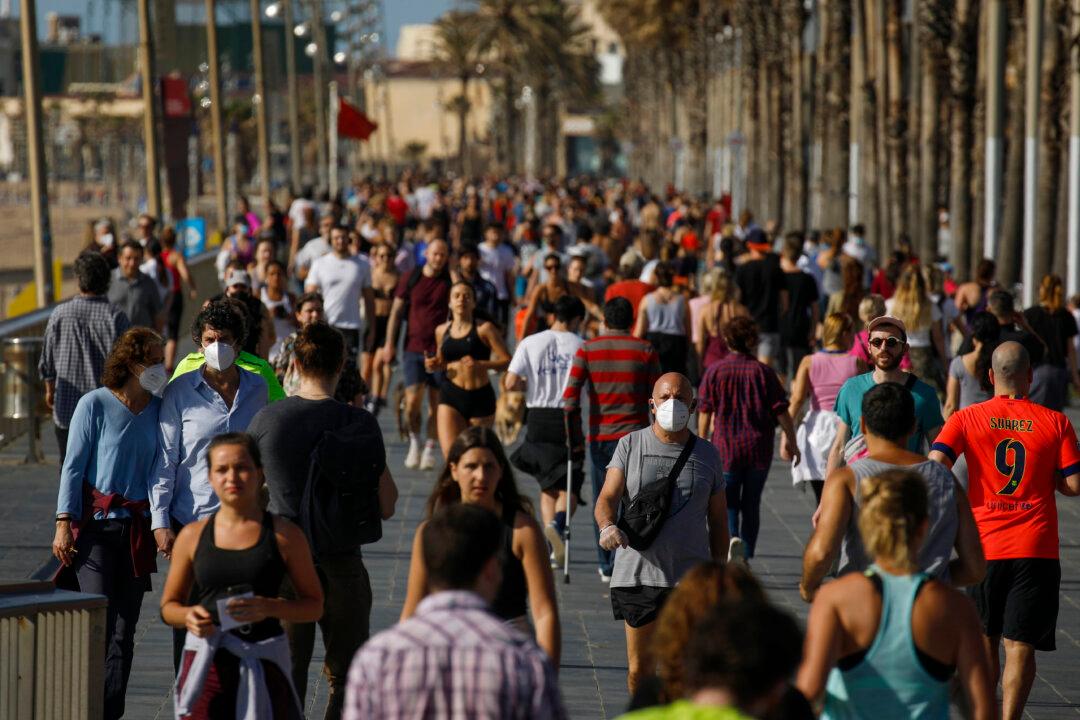BARCELONA—Thousands of Spaniards woke up early on Saturday to lace up their running shoes for the first time in seven weeks after the government ended a prohibition on outdoor exercise.
At 6 a.m. early risers poured into the streets dressed in athletic gear to run, bike, and speed walk, with many taking extra caution to loosen up atrophied muscles and avoid a twisted ankle that would ruin the joy of release.





